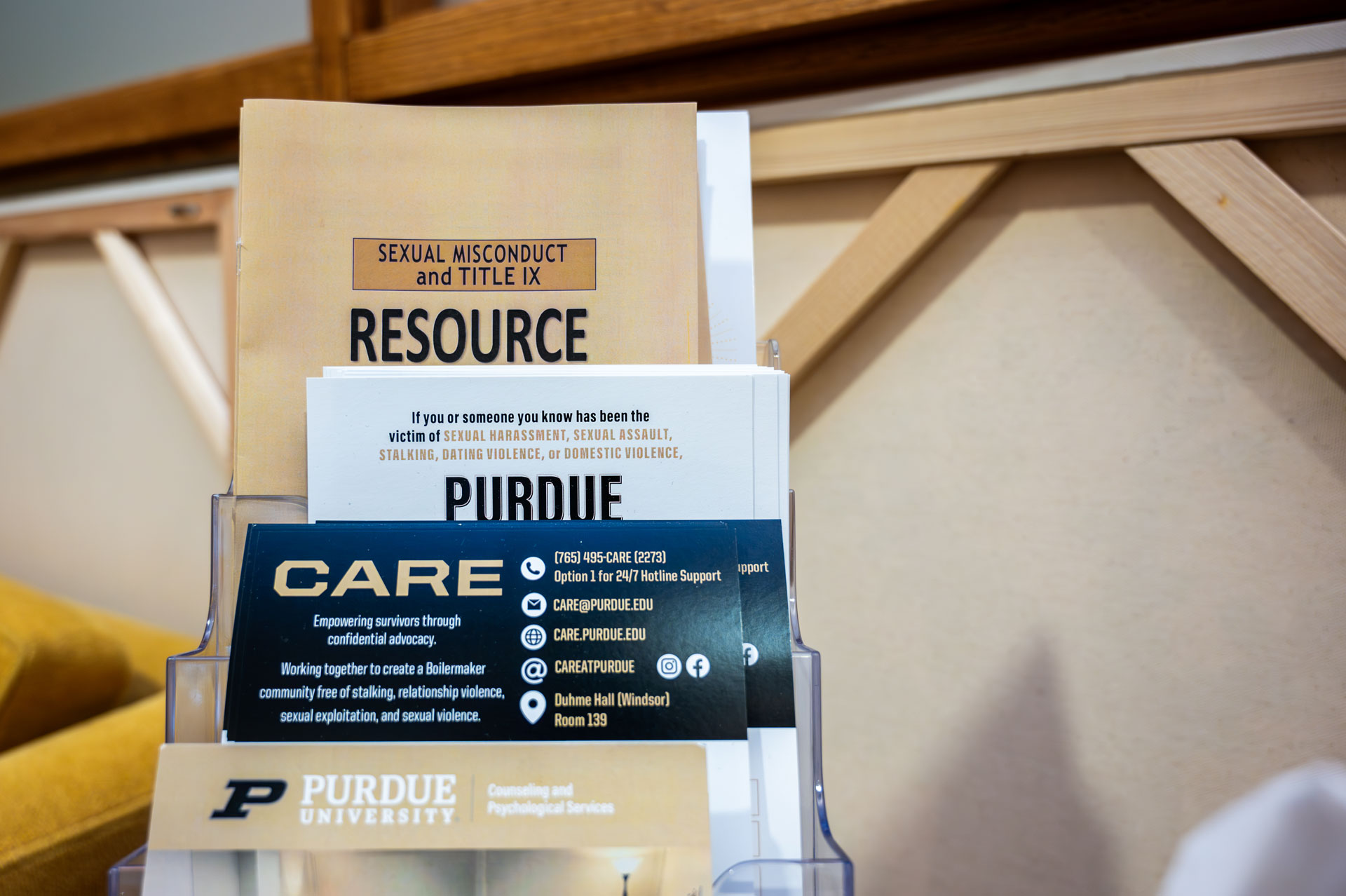CARE is committed to the education of our Boilermaker community in the prevention of stalking, relationship violence, sexual exploitation, and sexual violence. One of the ways we can accomplish this goal is through creating safe spaces for discussions to take place about these forms of violence and how we can take individual and communal responsibility within our circle of influence to end interpersonal violence in our community. To this end, CARE has developed three individual action toolkits will address the following topics:
- Sexual Violence: the RedZone
- Relationship Violence
- Stalking & Sexual Exploitation
Toolkit Content Overview
All toolkits include education specific to each toolkit's theme, as well as information on how to intervene as a bystander, how to support a survivor, and campus and community resources. Learn more about each toolkit's content below.
Sexual Violence: the RedZone
- What is sexual assault and its impact in the college age community?
- What is the RedZone?
- What are the causal factors of the RedZone?
- Taking a deeper dive:
- Alcohol
- Location/Safety
- Consent - FRIES
Relationship Violence
- What is intimate partner violence and its impact on the college-age community?
- Signs you may be in an abusive relationship
- Barriers to leaving an abusive relationship
- Safety measures if you are in an abusive relationship
Stalking & Sexual Exploitation
- What is stalking and sexual exploitation and their impact on the college age community?
- Structuring for safety when it comes to online interactions
- Safety when it comes to in person interactions
Purpose of Discussion Guides
To engage the requesting RSO or learning community in dynamic and impactful dialogue that causes self-reflection on their own personal beliefs and community norms surrounding interpersonal violence.
Desired Outcome
Each participant and community group will:
- Gain a greater understanding of a specific type of interpersonal violence and its impact on individuals within their community.
- What campus and community resources to utilize based on need.
- Gain tools to assist them in being a good bystander using the “I CARE” acronym.
- Identify beliefs and group/community practices that do not support creating a campus free from interpersonal violence.
- Create an action plan to address faulty beliefs and change policies and procedures within their circle of influence that are harmful to themselves and/or others concerning interpersonal violence.
- Develop a strategy for personal and community accountability for the created action plan.
Bystander Scenarios
Each toolkit will include at least three (3) bystander scenarios for participants to process through to become more comfortable with intervening in situations involving interpersonal violence, using the “I CARE” acronym. Click here to learn more about how to intervene using the “I CARE” acronym.



